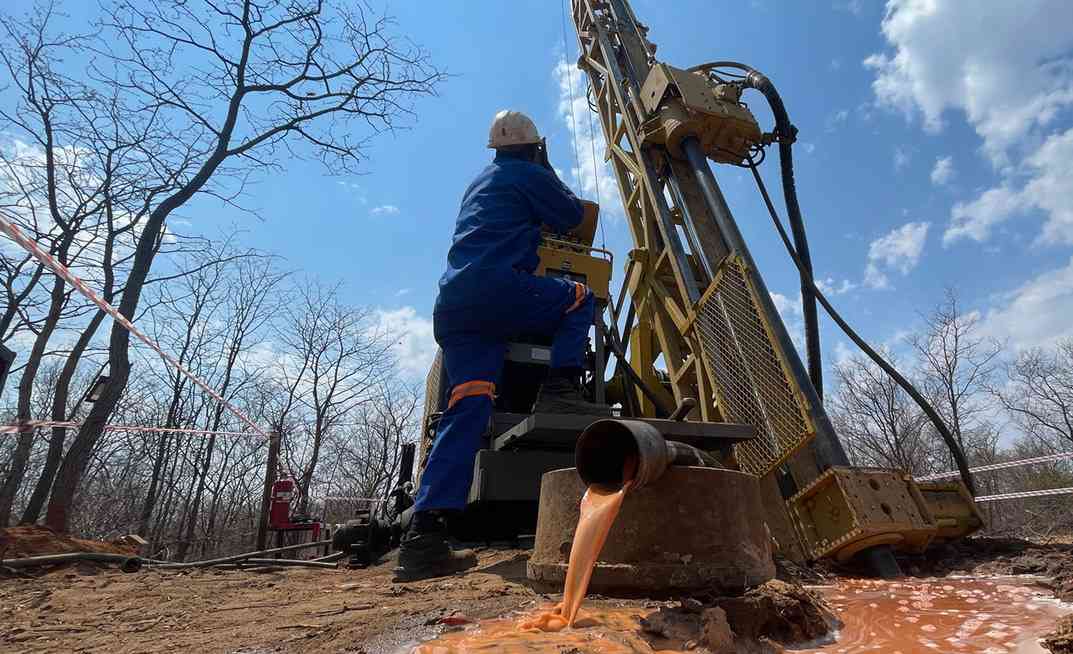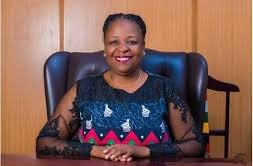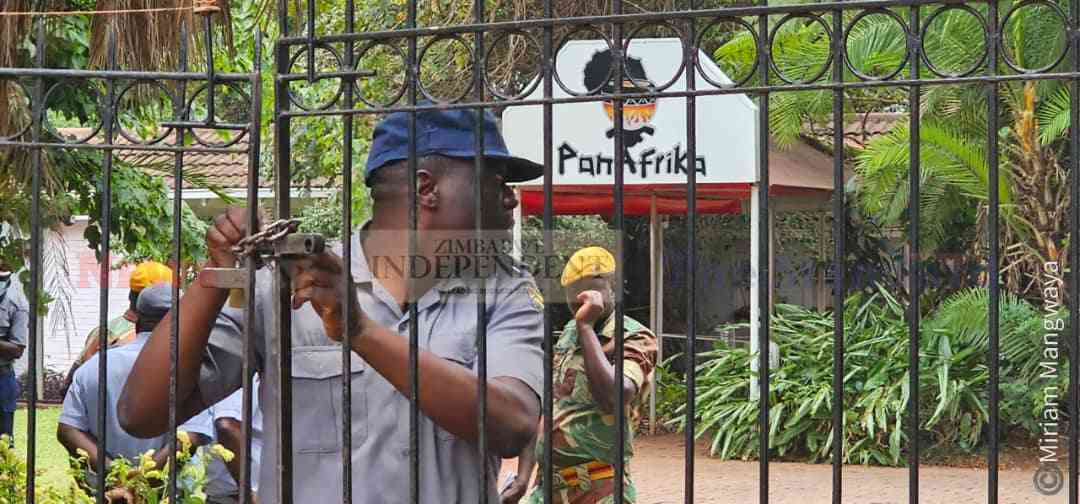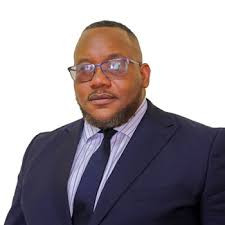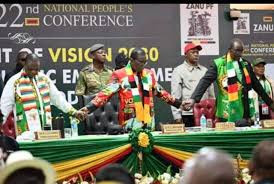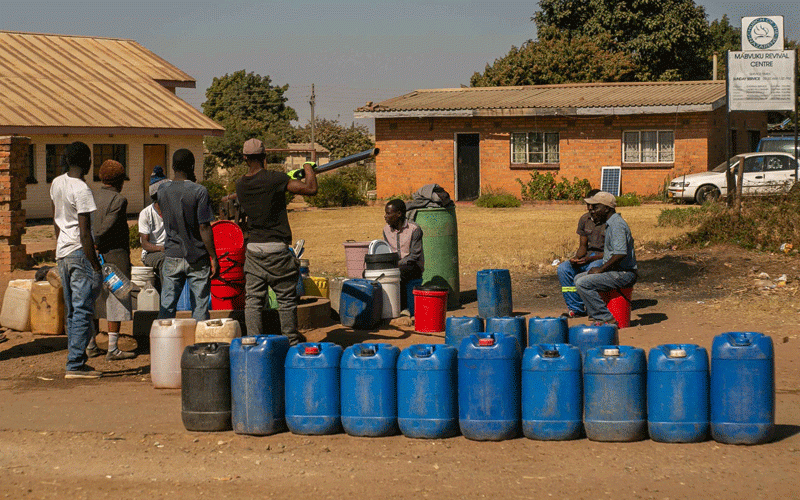
Bulawayo is dying, and former mayor Japhet Ndabeni-Ncube says it’s no accident.
In 2007, he claimed that the ruling Zanu PF, had deliberately ignored calls to declare the city’s water crisis a disaster, leaving it to wither away.
Now, years later, the city is facing a debilitating water crisis, and the former mayor’s words ring truer than ever before.
In 2007, Japhet Ndabeni-Ncube who was elected on an MDC ticket, made bold remarks about the government’s refusal to declare Bulawayo’s water crisis a state of disaster despite repeated appeals by city officials.
Out of rage, he declared that Zanu PF’s intention was to cripple Bulawayo, fully aware that the water crisis would deter any remaining investors and create health risks for residents.
At that point, the water situation had reached a critical level with unprecedented hours of water rationing, forcing many to resort to buying water from the black market.
Despite the dire situation, which led to outbreaks of water-borne diseases, the government failed to declare the crisis a state of disaster, leaving Bulawayo citizens to fend for themselves.
Sixteen years later, the current mayor of Bulawayo, Solomon Mguni, is facing a similar headache during his five-year term, with the government remaining silent on the declaration of a state of disaster.
- Revisiting Majaivana’s last show… ‘We made huge losses’
- Edutainment mix: The nexus of music and cultural identity
- ChiTown acting mayor blocks election
- Promoter Mdu 3D defends foreigners 30 minute set
Keep Reading
Since Zimbabwe gained independence in 1980, the government has disproportionately centralised resources and development to the capital city, Harare, while neglecting other cities such as Bulawayo, which has remained relatively underdeveloped with much of its infrastructure still in its colonial state.
The city’s supply dams, which were left behind by the colonialists, have received very little upgrades from the government in the over 40 years since independence, with only the Mtshabezi Dam being built.
Similarly, Bulawayo’s water and sewage infrastructure has outlived its lifespan, as admitted by the local authority.
Moreover, lack of political will has been largely cited as the major drawback to the idea of connecting the regional capital Bulawayo with the Zambezi River, which was first mooted by the then-governing British South Africa Company (BSAC) in 1912 and remains unimplemented more than a century later.
Matabeleland has long believed that discussions surrounding the project completion are often more prevalent during election cycles, leading to scepticism about the government’s commitment to addressing the water crisis.
Zimbabwe is scheduled to hold general elections in July or August this year.
Former Cabinet minister Angeline Masuku cited the Gwayi Shangani dam as one of Zanu PF’s trump cards ahead of the upcoming general elections, according to reports in the state controlled media.
According to human rights campaigner Mbuso Fuzwayo, the proposed Matabeleland Zambezi water project has been a political issue due to the lack of government commitment to bring water to Bulawayo, which is viewed as an opposition stronghold.
“The Zambezi water project has always been a political subject because the central government is not fully committed to bringing water to Bulawayo mainly because it is seen as an opposition stronghold,” Fuzwayo said.
“As such all these efforts they are publicly selling to the masses are simply for political reasons to win votes and nothing else.
“They just need to be seen as a caring government for the suffering masses.”
Fuzwayo said the current government administration is responsible for the ongoing marginalisation of Bulawayo and the Matabeleland region, rather than the colonial powers.
A study conducted in 2020 by Craig Tinashe Tanyanyiwa on the politics of water in Bulawayo shows that the politicisation of water in the region can be traced back to the colonial era and has continued into Zimbabwe’s independence.
“After a shift in the political landscape that resulted in the urban areas voting for the new opposition party (MDC) in the 2000 general election, the Zanu-PF controlled central government directed (the Zimbabwe National Water Authority) Zinwa an entity created by the 1998 act to manage bulk water, to take over water management in urban areas including Harare in 2005 and Bulawayo in 2007,” reads part of the study.
“Ranger (2007) suggests that this was a move to starve the opposition of any revenue they could get from water sales and to effectively control these “unruly” urban areas.”
According to a 2008 study by Muchaparara Musemwa titled “Early Struggles over Water: from Private to Public Water Utility in the City of Bulawayo, Zimbabwe, 1894-1924”, the issue of water in Bulawayo has been politicised since the colonial era, with contemporary struggles between the city and the Zimbabwean state over water control being reminiscent of earlier disputes.
During the severe water shortages in the city in 2007, Zinwa proposed utilising Khami Dam water as a solution to the crisis.
Since then, any suggestion of using water from Khami Dam has been met with angry reactions and strong emotions from city residents, stemming from previous claims by politicians that the dam contained the remains of victims of the Gukurahundi massacres.
The late Zapu leader Dumiso Dabengwa and the late former Information minister Sikhanyiso Ndlovu, both prominent Bulawayo politicians at the time, also participated in the debate.
Ndlovu suggested erecting a shrine at the site to commemorate the alleged killing and dumping of freedom fighters by the Ian Smith regime into the dam.
Dabengwa opposed the idea of recycling Khami Dam water for Bulawayo residents, suggesting that those interested in the water should use it for themselves and their families instead.
In 2011, the then Water Resources minister, Samuel Sipepa-Nkomo, suggested the use of Khami Dam water to address the water crisis, but his proposal was opposed by councillors in the city from his own opposition MDC-T party who told him to drink the water himself.
Gifford Sibanda, an Australia-based Zimbabwean political analyst, believes Zanu PF has a clear agenda for the region’s development.
“Water issues like many other developmental issues have been politicised,” Sibanda said.
“Around the 1980’s Bulawayo population projections showed Bulawayo was going to face a water crisis and up to this day the government has not done anything meaningful,” he says.
“Zanu PF has had a policy not to develop Matabeleland since the Gukurahundi era.
“It wants to use the water issue every time to show who has the power and say, ‘vote for us, we have the power to bring water to you’.
“It’s sad that water has been used as a political tool for a very long time.”
He added: “So the government will never declare a state of disaster for Bulawayo water because Zanu PF is not willing to do anything in a place where there are opposition elected officials.”
Khumbulani Maphosa, the coordinator of the Matabeleland Institute for Human Rights (MIHR), said the absence of political determination is the primary obstacle to the project.
“There has been no political will to bring the project to finality,” Maphosa said.
“The government has spent too much money on that project, but too little effort.
“It is only now with this government that we have seen progress.
“But I also don’t want to give them too much credit.
“If you look at the continuous failure by this current government to meet its own targets when we have been told money is there, it speaks of the politics of not being sincere.”
Sipepa Nkomo’s sentiments confirmed the prevailing belief that there is a lack of political will to finish the project.
“When I became minister, I also discussed that matter with the late former president Robert Mugabe and he told me that the government was not supporting the Gwayi Shangani project because our own people this side said they wanted to do it by themselves and all they wanted were mining rights so that the proceeds could be used to complete the dam,” he told The Republic.
“I asked him why Gwayi Shangani Dam alone, he said, well, it’s up to you to bring up a proposal.
“I then went to Parliament and brought up a proposal, which was passed that the dam should receive national support.
“It was then that Mugabe sent me to China where he ordered me to meet with several investors.
“We managed to get US$1, 2 billion. Part of it came when I was still minister, but I am not sure if the remainder came.”

